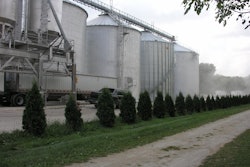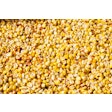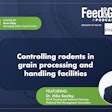The formulation and manufacture of feed is an increasingly complex science-based process. As is the case with food products for human consumption, great care is taken by feed suppliers to ensure that a high-quality and safe product is delivered to the customer. The business of marketing feed and maintaining client relationships is also increasingly complex and competitive.
As animal agriculture consolidates, and producers generally become larger, the size of individual customer accounts and their associated feed purchases are increasing. These increasing complexities lend themselves to an increased risk for business disputes between feed suppliers and feed customers. When such disputes do arise, claims regarding the quality of the feed delivered are likely to follow.
Feed & Grain turns to Todd Langel and Jacob Bylund, of Faegre & Benson, for a discussion of such claims and their management.
F&G: How common are claims related to the quality of feed within the context of a larger business dispute with a feed customer?
Bylund: Business disputes can and do arise between feed suppliers and their customers. A dispute may arise, for example, over the price to be paid for feed. Market volatility, as has been experienced in recent years, lends itself to such disputes. Disputes are also more likely to arise when the feed customer's business is suffering generally, such as the case of a dairy producer dealing with low milk prices. When disputes of this nature arise, it is not uncommon for a feed customer to assert that the previously delivered feed was defective in some way. For example, assume that due to financial difficulties, a dairy producer is unable to pay her feed bill and the feed supplier generates a significant accounts receivable. Eventually, the parties will enter into discussions regarding the payment of the feed bill and the dairy producer may seek input from counsel.
One of the first questions counsel will ask the customer is "Was there anything wrong with the feed?" This discussion with the producer may result in the assertion of a counterclaim against the feed supplier. In some cases, the stated value of the counterclaim can exceed the value of the supplier's accounts receivable. Whether viable or not, the feed customer may assert such a claim as a tool to resolve the open account.
F&G: What are some examples of the types of claims a feed customer may assert in these instances?
Langel: There are any number of claims which a feed customer may assert. For example, a feed customer may make a simple assertion that the feed was not mixed properly and that the ingredients were not mixed uniformly through the feed. At the opposite end of the spectrum, a feed customer may assert that the feed was contaminated with mycotoxins or other substances.
F&G: Don't mycotoxins occur naturally in some types of feed ingredients?
Langel: Mycotoxins are compounds produced by molds or fungi and you are correct that they occur naturally in field crops. The presence of mold or fungi in a field crops does not always result in production of mycotoxins, but abnormal levels of mycotoxins in grains are sometimes associated with crop stress due to drought and/or heat. Mycotoxin contamination levels normally do not increase in stored grain if the grain is kept at appropriate moisture and temperature levels. There is research suggesting the presence of naturally-occurring mycotoxins at some level in many types of grains and forages.
F&G: If mycotoxins are naturally occurring, how can they form the basis of a feed related claim?
Bylund: With respect to mycotoxins, it is an issue of the quantity and type of mycotoxins and not simply whether a small amount may be present. Different species of animals react differently to different types of mycotoxins. Possible symptoms range widely, from decreased feed intake to more significant symptoms, and depend greatly on the animal and level of contamination.
Mycotoxins are fodder for feed-related claims because they are naturally occurring and can be found in trace amounts in many instances. The feed customer or their counsel will assert that the quantity found was very harmful to the animals.
In truth, the mycotoxins, if present, likely had no impact on the customer's operations. It is simply an attractive claim to counsel for the producer in relation to the overall business dispute.
F&G: How can a feed supplier guard against feed-related claims, including mycotoxin-related claims?
Langel: Feed manufacturers and nutritional consultants concerned about the allocation of risks associated with mycotoxins or other feed-related claims can employ a number of standard procedures in their operations that will help clarify the expectations of producers, and at times, serve to protect from unfounded claims made by producers whose production levels fall short of expectations.
Feed manufacturers and consultants should recognize the tendency for producers to zero in on variables outside the realm of their own management or control. Herd health consultants and nutritionists often report that when production challenges arise, an inordinate amount of attention is given to the feed, concentrates or mineral packages. Instead of looking into their own management of water, heat, forage, reproduction or other facets, producers focus on feed. In an effort to stem this tendency, consultants should take time to listen to producers' concerns, and to educate them on the importance of effective management of the other variables affecting their production.
Consultants should endeavor to keep customer expectations in check with the realities of dealing with biological processes. Aggressive sales styles and "puffery" may lead to unrealistic performance expectations, and ultimately, a disappointed client. Take time to explain the pros and cons associated with a particular nutritional strategy, and understand that often producers may place undue weight on examples of performance gains or projected cash flows. Producers must understand that variables exist in any production system, some of which are under the control of the producer and consultant, but a greater number of which are up to environmental factors.
Bylund: It is advisable to consider an evaluation of contracting procedures to provide for the proper disclaimer of warranties and to provide for alternative dispute resolution methods, so that any disputes that arise can be dealt with in an efficient and inexpensive manner. To help avoid serious disputes, it may be beneficial to engage the services of a competent attorney familiar with the industry and these issues to appraise current practices and recommend improvements to increase the level of protection from unfounded or frivolous claims.
Managing your companies' internal claim process is also very important. To that end, develop and follow a complaint resolution protocol that includes steps for gathering pertinent information about the claim or complaint as early as possible in the process. Maintain a solid record-keeping process. It is always more difficult and costly to assemble the information at a later date in the context of defending a claim in litigation. This goes for both feed product records and records related to the producer, his/her animals, management, symptoms, veterinary diagnosis and the like.
Langel: Because many feed performance claims are asserted in collection actions, keeping your accounts receivable in check helps manage these risks. Performance claims raised in defense to collection efforts are some of the oldest tricks in the book. Keeping detailed records of invoices, account balances, orders and finance charges can help avoid the need for litigation and help to support your case if a lawsuit is necessary.
Lastly, know your customer before servicing the account. Request organizational information, (if incorporated or an LLC) and financial information, and consider a master agreement before providing services on credit.
As legal advisers to many of the world's leading food, agriculture and biofuels companies, Faegre & Benson lawyers have industry-specific knowledge in core areas important to these businesses. To leverage that knowledge effectively for clients, Faegre & Benson LLP offers a focused group of more than 100 lawyers out of offices in Denver, Des Moines and Minneapolis.


















